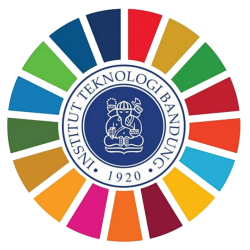
Sustainable Development Goals (SDGs) in ITB
SDG 17: Partnership for the Goals
Revitalize the global partnership for sustainable development.
Commitment to meaningful education around the SDGs across the university
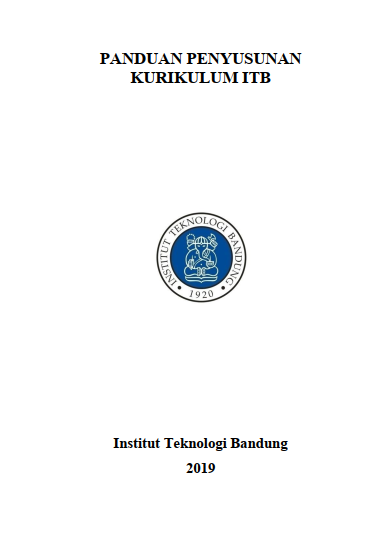
Extracted and translated from a document: GUIDELINES FOR THE DEVELOPMENT OF ITB CURRICULUM 2019
2.3 Strategic Issues in ITB Education Curriculum
2.3.2 Sustainability
Sustainability is a strategic issue that needs attention in the education process at ITB to prepare graduates to face the developments and challenges of the 21st century, and contribute to the achievement of sustainable development goals (SDG).
The issue of sustainability is the result of the development of environmental issues that rolled out in the 1970s. Covered in terms of sustainability is understanding how natural systems work, so that we can live in harmony with nature and prevent environmental damage due to human activities. Sustainability stresses the need for the world’s population to meet the needs of the present without compromising the ability of future generations to meet their needs. The concept of sustainability consists of three pillars, namely economic, environmental, and social, or it is often stated as profit, planet, and people. Globally, sustainable development targets were agreed in 2015 by the United Nations General Assembly, with the formulation of 17 points of sustainable development goals (SDG), including poverty alleviation, quality education, clean energy, infrastructure, and others.
The concept of sustainability continues to grow in scope; the definition has been broadened to include the discourse of a global society based on attitudes that respect nature / the environment, universal human rights, economic justice, and a culture of peace. To achieve this goal, a new perspective is needed. Conventional ways in terms of consumption and industrialization will not be able to support the increasing world population. A new approach and lifestyle is needed so that humans can obtain and use materials and natural resources in a sustainable manner. Thus, sustainability is a paradigm that goes beyond environmental issues. Some components of sustainability include: resource optimization, environmental management, safe practices, economic optimization, community satisfaction, and effective governance.
2.6.1 Curriculum Structure of the Undergraduate Program
The curriculum of the Undergraduate Program is regulated by following the following conditions:
| Compulsory ITB courses, consisting of Pancasila and Citizenship 2 SKS, Religion and Ethics 2 SKS. In addition, the curriculum also contains content about Management and the Environment (Sustainability) which can be distributed into various subjects with a total of at least 2 credits each. |
Student Volunteering Programme



Community Service Activites
Every year, ITB conducts community service activities in the form of Real Work Lectures (KKN) where students get along and make solutions to problems in rural communities. In 2017, this activity was carried out in Desa Cipakem, Kecamatan Maleber, Kabupaten Kuningan. This activity also works with regional governments, companies, state-owned enterprises and the village community itself. There are several themes that are carried, for example making solutions from infrastructure, agriculture, plantation, energy to water transmission problems.
Student's Community Service
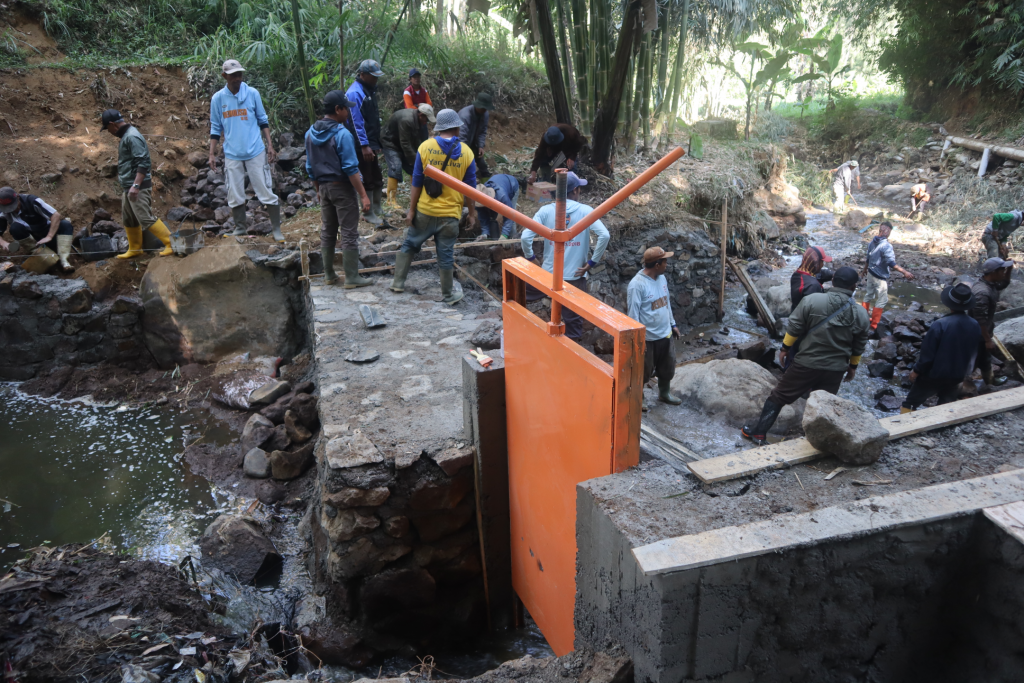
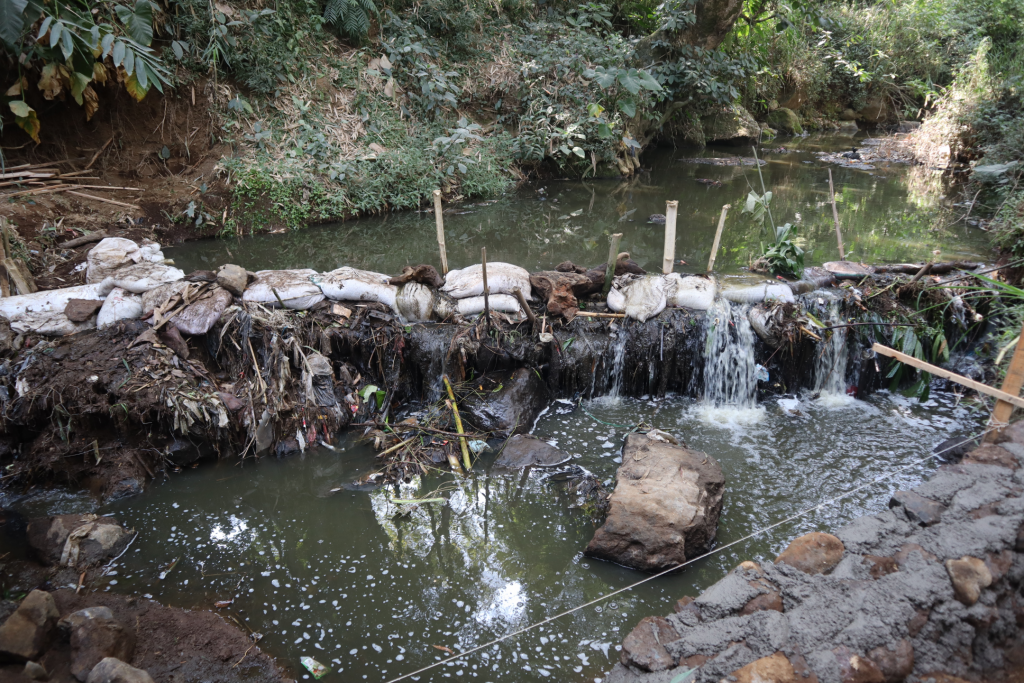
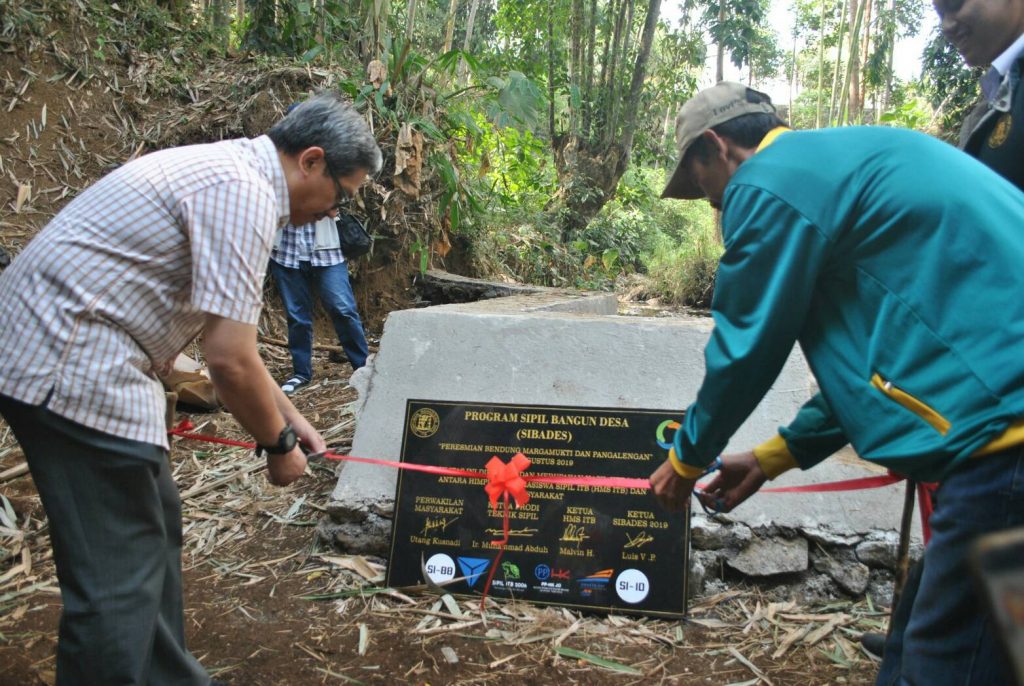
Conducting Community Service, Civil Engineering Students of ITB Built Weir in Pangalengan
BANDUNG, itb.ac.id – As an implementation of community service, Civil Engineering Student Association (HMS ITB) facilitated by Semi-Autonomous Institution (BSO) called Sibades (Sipil Bangun Desa or Civil Engineering Build Villages), conducted a community service to design and construct weir in Pangalengan, West java. Each year, community service is done over different problems and solutions. This year, for the object of the community service, Sibades built weir.
A weir is a structure built as a barrier that alters the flow characteristics of river. Different from a dam, a weir raises water surface for easier water channeling onto intake channel (a channel that flows water from river to objects of irrigation such as rice fields, plantation, and husbandry) even during drought. According to Muhammad Qinthara Aghnat as the Head of Sibades Scientific Division, the funding, location, design, and other things have been prepared since previous management in 2018/2019. The selection was based on urgency and need of water availability, especially irrigation in Pangalengan.
Cross-sectoral dialogue about the SDGs
PT SMI & ITB SDGs Network Held Focus Group Discussion with Developers and Investors
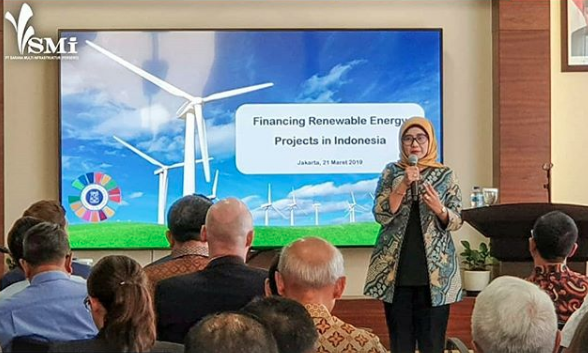
In order to support low carbon economic development & development plans in the renewable energy sector, PT SMI – one of the Special Mission Vehicles of the Ministry of Finance of the Republic of Indonesia and ITB SDGs Network held a Focus Group Discussion (FGD) titled “Financing Renewable Energy Projects in Indonesia”.
This FGD aims to gather potential developers & potential investors to share insights on the conditions of renewable energy development in Indonesia. On this occasion, a technical presentation was presented by the local developer regarding the technology used and challenges in the field.
Through this forum, cooperation is expected to form in order to realize development that mitigates climate change & is in line with the achievement of Sustainable Development Goals (SDGs).
Towards Safe Drinking Water 2030, ITB and the Director General of Public Health Organize Drinking Water Quality Monitoring Advocacy
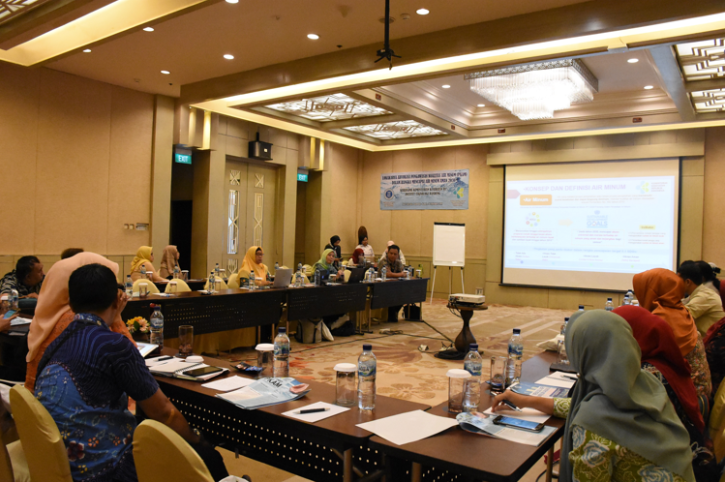
ITB in collaboration with the Director General of Environmental Health of the Ministry of Health of the Republic of Indonesia, organized activities to prepare Advocacy for the Implementation of Drinking Water Quality Monitoring (PKAM) and Development of the Indonesia Water Quality Data Baseline, Thursday (26/9/201), at the Sheraton Hotel, Dago, Bandung.
The activity that was held in the form of a workshop was in order to support the government’s program towards safe drinking water for the purpose of sustainable development or Sustainable Development Goals (SDGs) in 2030. Water is known to be one of the aspects that has a close influence on people’s lives and health. Poor water quality is associated with various water-related illnesses, as well as economic losses due to medical expenses and reduced productive days due to illness.
ITB Sends 18 Thousand Liters / Hour Mobile Water Treatment Installation Tool to Lombok
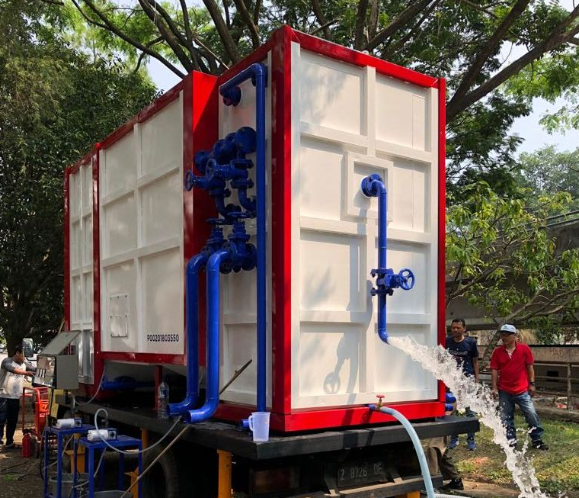
(translated from https://www.itb.ac.id/news/read/56756/home/itb-kirim-alat-instalasi-pengolahan-air-mobile-berkapasitas-18-ribu-literjam-ke-lombok)
BANDUNG, itb.ac.id – Bandung Institute of Technology has sent aid in the form of a Mobile Water Treatment Installation (WTI) tool for earthquake victims in Lombok, West Nusa Tenggara. The purpose of this aid is to help the people of Lombok who are struggling with clean water. As is known, the lack of clean water facilities and bathing, washing and toilets facilities is a problem faced by the people of Lombok. So those whose homes have been destroyed and live in temporary tents must find water to remote locations. Moreover, drought conditions are now occurring, such as in North Lombok and the Northwest District, which is mostly in the mountains. The well became shallow due to the vibration which caused the well to collapse so that it was covered with sand.
Mobile WTI can produce clean water with a capacity of 5 liters per second or 18 thousand liters per hour. This tool can meet the needs of drinking water, MCK for 500 households or the equivalent of 2 thousand people under normal circumstances. If in an emergency or disaster, you can meet up to 4 thousand-5 thousand people. “The 5 liters per second mobile WTI designed for the needs of residents who have not yet received clean water services, with raw water sources for rivers, lakes, ponds or reservoirs,” Bagus Budiwantoro said from the Aerospace Mechanical and Mechanical Engineering Research Group ITB.
The delivery of the equipment was the result of a collaboration between the Institute of Research and Community Service of ITB, the Faculty of Mechanical Engineering and Aerospace ITB, Solidarity Forever Foundation and PT. Tekno Mas Tirta as the owner of the mobile WTI. Delivery of the equipment was carried out on Friday (08/17/2018) transported by truck by land, then after arriving at the port of Tanjung Priok, the transport ship will depart via sea route directly to Lombok. It is planned that the truck will arrive in Lombok on Wednesday (8/22/2018). ITB also sent one more truck for needs there. Mobile IPA will be placed in the upstream river irrigation channel in North Lombok Regency because it is the worst location of damage caused by an earthquake. It has coordinated with the Lombok Disaster Task Force for the placement of tools. Water production will be distributed through 17 mobile tanks to evacuation posts.
